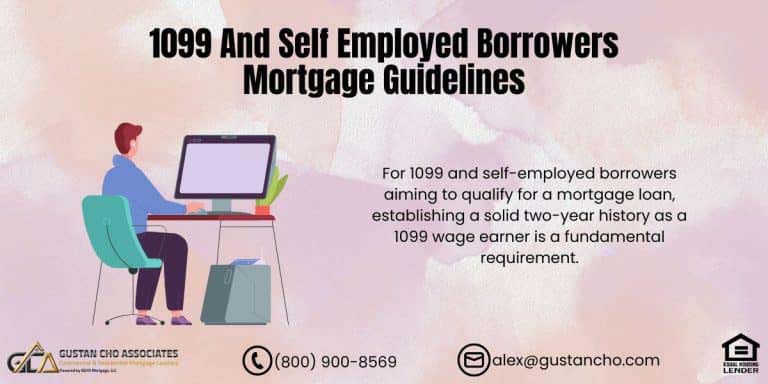This article delves into Mortgage For College Graduates Lending Guidelines, shedding light on established norms and recent changes that may impact the qualification criteria for aspiring homebuyers in this demographic. For those recent graduates armed with job offer letters from full-time employers, securing a mortgage is generally feasible, provided they possess well-established credit and fulfill the two-year work experience prerequisite mandated by lenders in home buying.
In a noteworthy development, the landscape of FHA guidelines shifted on June 17, 2021, introducing modifications that bear significance for college graduates seeking mortgages. One pivotal adjustment in this policy entails considering a borrower’s actual monthly payment towards their student loans, a departure from the previous practice of using the standard payment amount.
This alteration proves advantageous for homebuyers with student debt, as it acknowledges that monthly payments are often lower than the standard figures. While enhancing accessibility, this revision applies specifically to those who meet the minimum eligibility requirements for an FHA-insured mortgage.
Within the broader scope of this exploration, we aim to comprehensively cover the spectrum of mortgage qualification for recent graduates, extending beyond the purview of traditional four-year college attendees. This inclusivity encompasses graduates from high schools, trade schools, junior colleges, and universities. By addressing the nuances associated with diverse educational paths, we seek to equip readers with a nuanced understanding of the mortgage landscape tailored to recent graduates across various educational backgrounds.
Click here to qualify for a mortgage.
Income-Based Repayment On Conventional Loans
In recent developments, there is promising news for college graduates seeking mortgages. The changes allowing for income-based repayment plans have been implemented by Fannie Mae, Freddie Mac, and HUD (Department of Housing and Urban Development). This favorable shift in policy is contingent on the stipulation that the details of these income-based repayment (IBR) plans are accurately reported across all three major credit bureaus.
This amendment significantly broadens the horizons for borrowers carrying substantial outstanding balances, providing them with increased opportunities to qualify for conventional and FHA loans.
Gustan Cho Associates, a prominent mortgage company with a nationwide presence, has established itself as a leading player in the industry by adopting a unique approach. Notably, they have imposed no additional requirements on government and conventional loans, commonly known as overlays.
This strategic decision sets Gustan Cho Associates apart, creating a streamlined and accessible pathway for college graduates in their pursuit of securing a mortgage tailored to their specific needs. By eliminating overlays, this mortgage company exemplifies a commitment to simplifying the mortgage application process, thereby enhancing inclusivity and ensuring that the financial goals of college graduates are met with ease and efficiency.
As college graduates navigate the complex terrain of mortgage options, these recent changes, coupled with Gustan Cho Associates’ distinctive approach, collectively contribute to a more favorable and accommodating environment for those embarking on their homeownership journey.
Mortgage For College Graduates With No Employment History
There’s positive news about mortgage for college graduates, as Fannie Mae, Freddie Mac, and HUD now permit income-based repayment plans, provided that the IBR payment details are reported across all three credit bureaus. This development opens up opportunities for borrowers with substantial outstanding amounts to qualify for conventional and FHA loans.
Notably, Gustan Cho Associates, a nationwide mortgage company, distinguishes itself by imposing no overlays on government and conventional loans, offering college graduates a streamlined and accessible path to securing a mortgage tailored to their needs.
For college graduates navigating the mortgage landscape, the recent update from Fannie Mae, Freddie Mac, and HUD brings encouraging prospects. The allowance of income-based repayment plans, contingent on comprehensive reporting across all three credit bureaus, expands avenues for borrowers with significant outstanding balances to explore eligibility for conventional and FHA loans.
Gustan Cho Associates, operating nationally, stands out as a mortgage company that eliminates additional requirements, or overlays, on government and conventional loans. This commitment ensures a smoother and more inclusive process for college graduates aiming to secure a mortgage that aligns with their financial goals.
Contact with us for student loans, click here
Mortgage For College Graduates With Deferred Student Loans
Commencing June 17, 2021, a substantial shift in mortgage guidelines about FHA Loans has ushered in noteworthy alterations concerning student loans. Previously, student loans deferred for more than 12 months were excluded from the computation of debt-to-income ratios for mortgage loan applicants.
However, the revised regulations now mandate the inclusion of deferred student loans exceeding the 12-month deferral period in these calculations. This change has far-reaching implications, especially for recent college graduates grappling with significant student loan balances. The burden of student loan debt is particularly high for those with advanced degrees, such as medical or law degrees, where debts can easily exceed $200,000.
For individuals fortunate enough to have parents handling their student loan payments and making direct payments to the loan provider for the preceding 12 months, an avenue exists for deductions. To substantiate this arrangement, borrowers must furnish supporting documentation, such as 12 months’ worth of canceled checks or bank statements, illustrating the parent’s consistent transfer of funds directly to the student loan provider.
Another viable scenario involves the parent depositing the precise student loan payment amount into the borrower’s checking account, followed by the borrower making an equivalent payment to the student loan provider.
However, this strategy’s effectiveness hinges on the discretion of the lender and the specific mortgage underwriter, highlighting the nuanced decision-making process involved in mortgage approval. It underscores the importance of individual circumstances and the flexibility exercised by underwriters in evaluating these financial arrangements.
This added layer of discretion emphasizes the need for borrowers to communicate effectively with lenders to navigate the evolving landscape of mortgage regulations, particularly in the context of student loan debts for recent graduates.
Barriers In Qualifying For Mortgage For College Graduates
All student loan payments, even during deferment, became crucial to borrowers’ calculations. When the student loan payment is zero due to postponement, mortgage lenders must determine a monthly payment equivalent to the student loan debt amount. If the borrower lacks information about the post-deferment student mortgage loan payment, the underwriter uses 0.50% of the loan balance to calculate the monthly debt payment.
However, suppose the borrower can obtain the actual post-deferment monthly payment from the student loan provider in written form. In that case, that figure takes precedence in calculating the student loan payment. It is important to note that both FHA and conventional loans accept Income-Based Repayment (IBR), providing an option for homebuyers with substantial student loan balances to qualify using an income-based repayment plan, adding flexibility to the Mortgage For College Graduates.
For borrowers facing uncertainty about their post-deferment student mortgage loan payment, the process involves either relying on the mortgage loan underwriter’s calculation based on the loan balance or obtaining a verified figure directly from the student loan provider. This underscores the significance of obtaining written confirmation from the student loan provider to ensure accurate and transparent calculations.
Additionally, the option of Income-Based Repayment (IBR) on FHA and conventional loans is beneficial for homebuyers with higher outstanding student loan balances, offering them an alternative approach.
To qualify for mortgage for college graduates, click here.
If you have any questions on Mortgage For College Graduates Lending Guidelines or borrowers who need to qualify for FHA loans with a lender with no overlays on government or conforming loans, please contact us at Gustan Cho Associates at 800-900-8569. Text us for a faster response. Or email us at gcho@gustancho.com. The team at Gustan Cho Associates is available 7 days a week, on evenings, weekends, and holidays.
FAQ: Mortgage For College Graduates Lending Guidelines
- Who can secure a mortgage as a recent college graduate? Recent college graduates with job offer letters from full-time employers can generally secure a mortgage if they have a well-established credit history and fulfill the two-year work experience prerequisite mandated by homebuying lenders.
- What significant change occurred in FHA guidelines on June 17, 2021? On June 17, 2021, FHA guidelines were modified to consider a borrower’s actual monthly payment towards their student loans, rather than the standard payment amount. This change benefits homebuyers with student debt and applies to those who meet the minimum eligibility requirements for an FHA-insured mortgage.
- What is the significance of income-based repayment plans for conventional loans? Income-based repayment plans have been introduced by Fannie Mae, Freddie Mac, and HUD, allowing borrowers with substantial student loan balances to qualify for conventional and FHA loans, provided that their IBR payment details are accurately reported to all three major credit bureaus.
- What options are available for college graduates with no employment history seeking a mortgage? Fannie Mae, Freddie Mac, and HUD now permit income-based repayment plans for borrowers with substantial student loan balances, provided that the IBR payment details are reported accurately to all three credit bureaus. Gustan Cho Associates’ no-overlay policy further simplifies the process for these graduates.
- What significant change occurred for graduates with deferred student loans in June 2021? Starting June 17, 2021, mortgage guidelines regarding FHA Loans were adjusted to include deferred student loans exceeding the 12-month deferral period in debt-to-income ratio calculations. This change has implications for graduates with significant student loan debt, including those with advanced degrees.
- How can borrowers deduct their student loan payments if parents handle them for 12 months? Borrowers can deduct student loan payments if parents have made consistent direct payments to the loan provider for 12 months. Supporting documentation, such as canceled checks or bank statements, must be provided to substantiate this arrangement.
- What options are available for borrowers facing uncertainty about their post-deferment student loan payments? Borrowers can either rely on the underwriter’s calculation based on the loan balance or obtain a verified figure directly from the student loan provider.
Are you a recent college graduate? Speak with our loan officer today.
This blog about Mortgage For College Graduates Lending Guidelines was updated on February 6, 2024.









